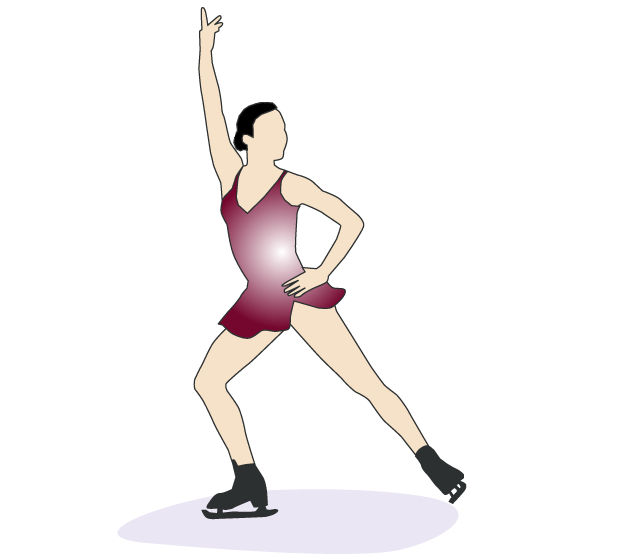Women were barred from competing at the ancient Olympics, and were only allowed to enter limited events in the early days of the summer Olympic Games. At the first Winter Olympic Games in Chamonix in 1924, there were only 11 women participants out of the total 258 competitors. In fact there was only two events for women, the women's figure skating and mixed pairs. Women athletes could compete in only figure skating until 1948 when skiing was opened up as a competitive sport for women.
At 2022 the Winter Olympics, women competed in these 14 sports. Nordic Combined remains the only sport for males only.
- Biathlon
- Figure Skating
- Speed Skating and Short Track Speed Skating
- Snow Boarding, Alpine Skiing, Freestyle Skiing, Cross-Country Skiing
- Ice Hockey
- Curling
- Bobsled, Skeleton and Luge
- Ski Jumping
 There were 86 gold medals up for grabs at the 2010 Winter Olympics. 45 of these were for men's events, 38 for women events, and 3 for mixed events (where both men and women compete) - in Figure Skating (mixed ice dancing and mixed pairs) and Mixed Doubles Luge (though see below).
There were 86 gold medals up for grabs at the 2010 Winter Olympics. 45 of these were for men's events, 38 for women events, and 3 for mixed events (where both men and women compete) - in Figure Skating (mixed ice dancing and mixed pairs) and Mixed Doubles Luge (though see below).
Women's Luge
The International Luge Federation passed a new rule before the 1994 Lillehammer Games allowing men and women to race together in the doubles event. However, although technically women can compete in doubles luge, but it's almost never practiced. This is a little surprising as women generally do well in the event because of their size - one of the keys is to create as little resistance as possible. Having a woman on your team can also be advantageous as there are weight restrictions on the sled to ensure a fair race.
Related Pages
- Women at the Summer Olympics.
- Gender Testing at the Olympics
- Women's Olympics
- Female Firsts in Sport
- List of Winter Olympic Sports


 Upcoming Events
Upcoming Events